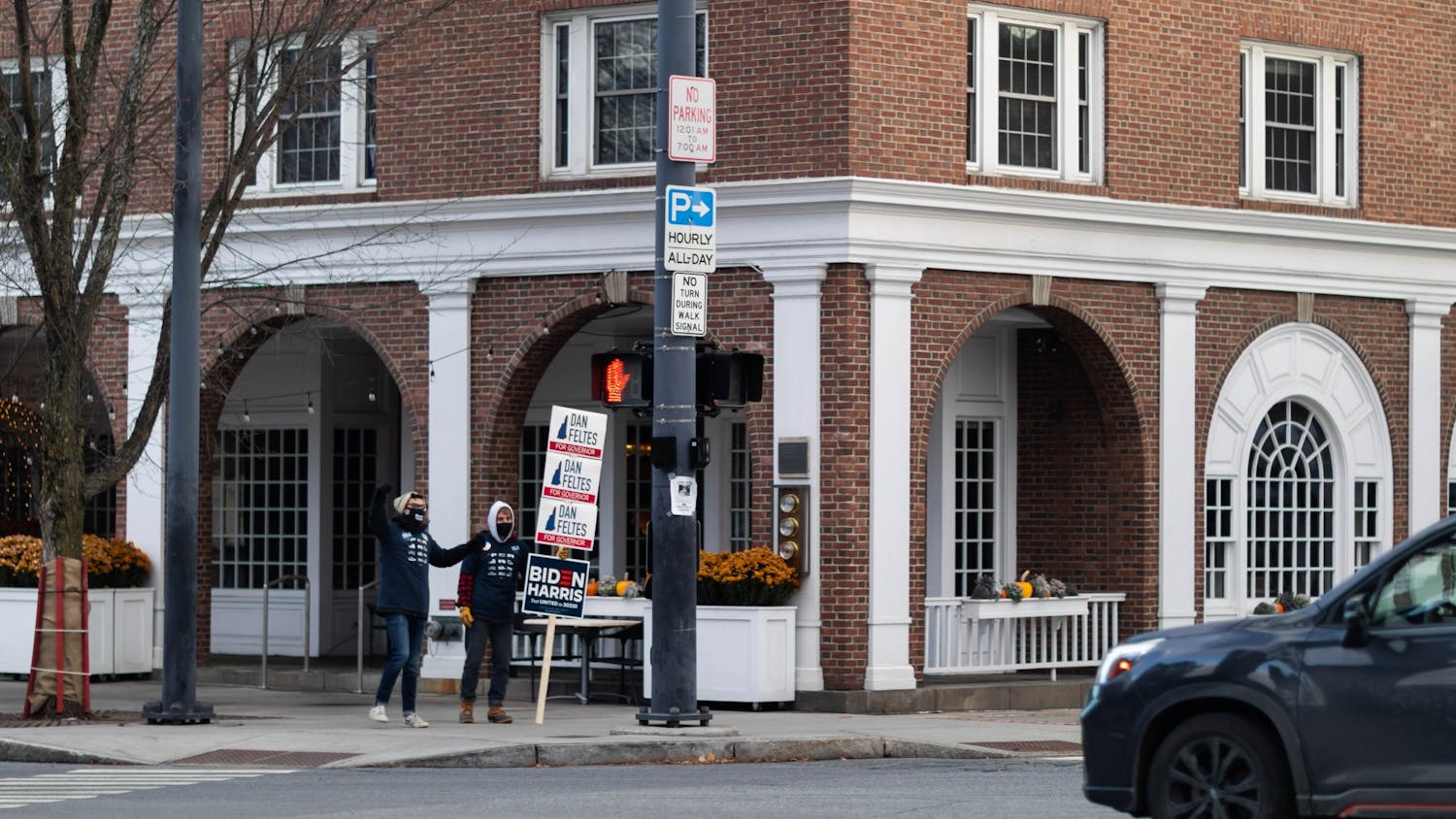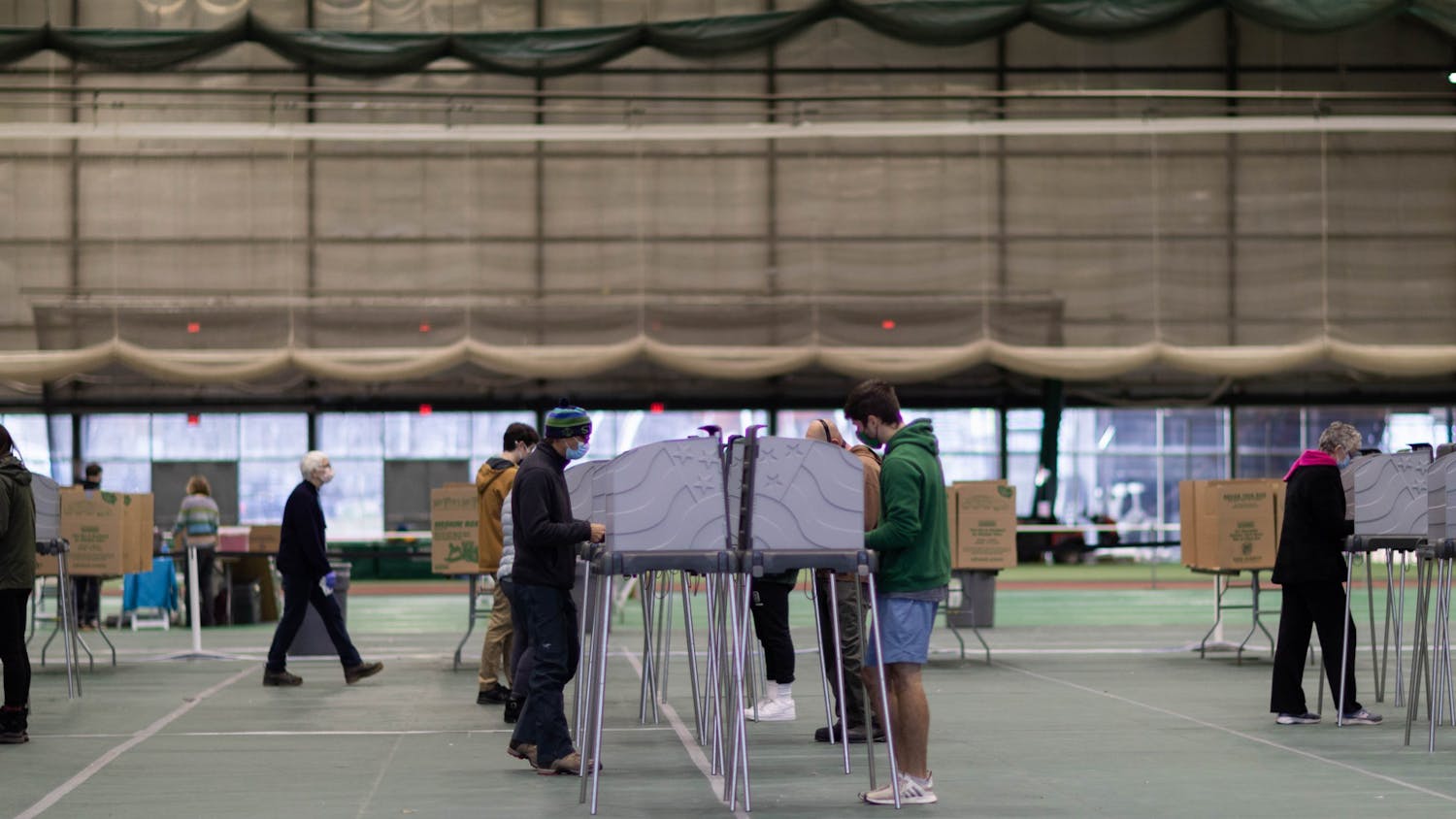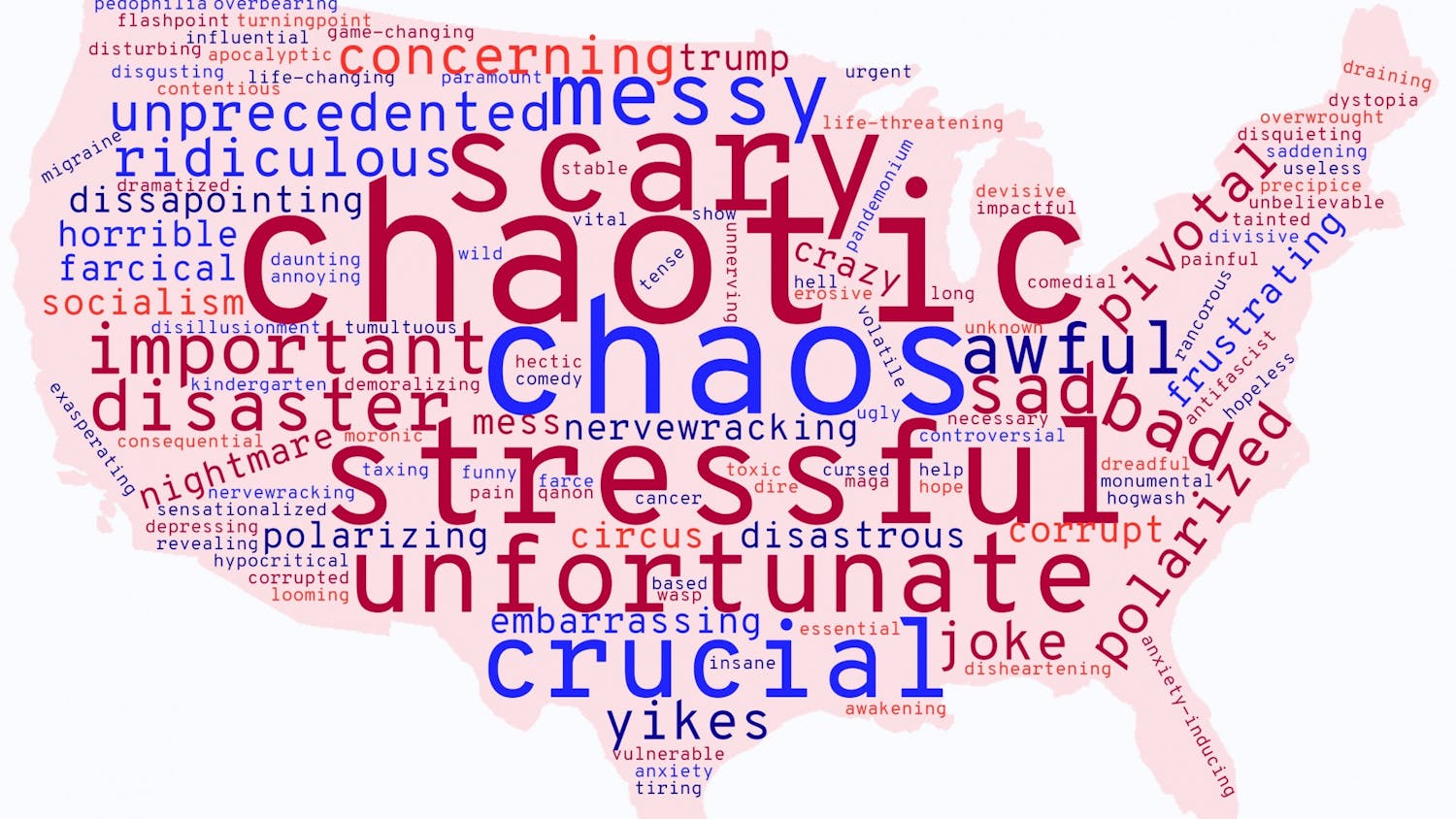During election week, many Dartmouth students struggled to cope with an extended period of uncertainty. As they waited for ballots to slowly trickle in, students also had to manage the stress that comes with week eight of fall term. Some relied on friends and avoided social media to manage anxiety, while others found comfort in staying informed on vote counts. And while some students are hopeful about the future, others remain worried.
Emery Rheam ’22, the president of the Dartmouth Democrats, led a student campaigning effort for Democratic candidates. Rheam said she felt busy and tired in the days leading up to the election.
“It keeps me up at night, and it wakes me up in the middle of the night sometimes,” Rheam said about her feelings toward the election before results came in.
Russell Chai ’24 said that the election took a toll on his academic performance and overall well-being. He noted that his motivation to do work was overshadowed by the impulse to check election results and follow different news feeds.
“I think in terms of doing homework, I always have an election results tab open, and [I’m] not focusing as much as I'd like to be,” Chai said of his productivity during election week. He added that other ’24s seemed similarly anxious while votes were being counted.
Rheam said that she ultimately wasn’t too surprised by how long the election took to play out, as experts had predicted that it might take multiple days to know who was elected president.
Alongside political concerns, student anxieties were heightened on Election Day because of COVID-19 regulations. Though some campus groups held official events, students could not easily congregate unofficially to watch the election due to a gathering limit of nine people. Furthermore, Hanover experienced its first major snow on Election Day, which made it difficult to gather outside.
But while COVID-19 limited social interaction, Sereena Knight ’24 said that she gained a sense of comfort from being on campus with other students.
“On campus, it’s definitely nice to be around people that you can talk to [and] think things through [with],” Knight said.
Knight said that being on campus made her feel supported in a way that might not have been possible if she was home for the election. She added that she had meaningful conversations with some of her professors regarding the election, especially in her GOVT 5, “International Politics” class.
However, Knight also said that it was hard to attend class on Wednesday morning after having stayed up late on election night. She wished that professors had adapted their schedules to accommodate the election, whether by canceling early classes or postponing assignments due the day Election Day.
“I think maybe there are measures that they could have taken to be more partial to students and [recognize] how stressful a time this is for students,” Knight said.
Rheam echoed how difficult it was to get through her assignments for the week while also keeping up with news. She said that she had multiple tabs open to different news sources so that she could watch not only the presidential election results, but also congressional and local results.
“Every 20 minutes … I [refreshed] the website to see what results ha[d] come in,” Rheam said.
Now that the results for most races are in, students expressed both relief and apprehension over what comes next.
Once former Vice President Joe Biden was declared president-elect, Chai, who is a member of the Dartmouth Democrats, said he felt a release of anxiety — even if the results weren’t necessarily a surprise.
“To be honest, I feel like this result has been anticipated for the past two days,” Chai said on Saturday. “It’s just nice that we can officially have one less thing to worry about.”
However, some students worry the election results did not automatically heal divisions in the U.S.
“I hope that Biden winning won't make people more apathetic. I think there’s a lot more progress that still needs to be made,” Chai said.
Republican student Victoria Xiao ’22, who voted for President Donald Trump, said that she doesn’t think that this election will be the end of the tensions between political parties. Rather, she worries about Dartmouth’s campus becoming overwhelmingly Democratic and drowning out the voices of Republicans. She also said she finds it frustrating that some Biden supporters ignore reasons why Trump supporters worry about a Biden presidency.
“I can’t just say ‘let’s come together and move forward’ because to say that is to ignore the real concerns and anger of conservatives,” Xiao said. “The division is not about Trump or Biden. The division is about why people voted for Trump and why people voted against Trump. And those reasons, I fear, will never be looked into in a way that will solve problems.”
Rheam acknowledged that this election isn’t the last step, and that more work needs to be done to reunite the nation. She said that she hopes people will remain motivated to participate in other important elections.
“There are so many other and even more powerful ways to advocate for what you care about, regardless of whether your candidate wins or not,” Rheam said.

Manasi Singh '24 is from Cincinnati, Ohio. She is majoring in anthropology and politics, philosophy and economics. At The Dartmouth, she wrote for news and Mirror but later transitioned to the business staff. Manasi now serves as the Publisher.




